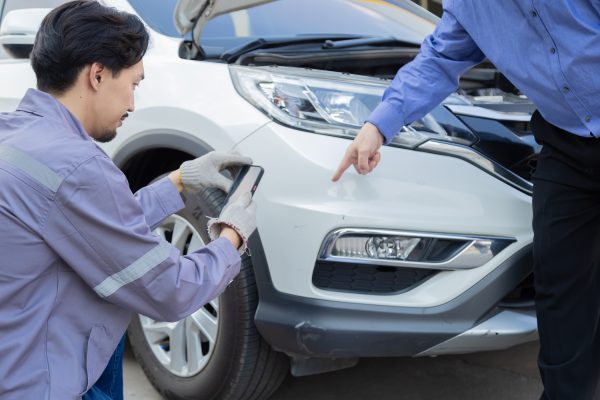Something I often hear is that when insurers are involved for the other party or parties, it changes the nature of the claim and means the trader may be off the hook.
This is particularly prevalent in cases where a vehicle catches fire, writing the vehicle off. The customer will have insurance on the vehicle, so the insurer will take control of the situation and should reimburse the customer, minus any excess.
I just want to clarify the issue of the insurance company’s involvement in these cases.
When a policyholder takes out insurance, they do so as a guarantee against a certain risk. If you have insurance, then if an incident occurs that would be covered under the policy you should receive rectification or payment much quicker than if you did not have insurance.
However, a claim against that policy will likely affect the customer’s No Claims Discount (NCD), which may mean higher premiums than if they had not had an accident or claim.
So, in the example of a car fire, maybe just days after the sale. Sometimes the customer contacts the trader; other times they go straight to the insurer.
Let’s assume that the cause of the fire was a fault with the vehicle, which would make the trader responsible under the Consumer Rights Act 2015 (CRA).
If the consumer goes straight to the trader, they would be entitled to a full refund.
If they go to their insurer, they would only be entitled to the market value of the vehicle. They may be able to rely on the price they paid as evidence of that market value, but they would have their excess deducted. The value of the excess would be recoverable from the trader.
However, that is not the end of the matter.

One of the largest independent specialist motor trade brokers in the UK. Our extensive history of supplying insurance to the motor trade means we understand your business needs. By partnering with a specialist insurance broker like us, you get exactly what you need to protect your business.
Insurance companies are seeking to make a profit, so whilst they indemnify their policyholder and have a contract to reimburse them for anything covered by the policy, they will also look at the case to ascertain if they can recover what they have paid out.
In this example, there is a responsible trader who will probably then be contacted by the insurance company asking for their outlay to be paid back to them, which they are entitled to recover.
So, whether insurers are involved or not, the claim remains the same. The full value of the claim is likely going to be pursued against you. Any claim involving insurers simply means the request for payment may come from a different source, but the fundamentals behind the claim do not change.
If you receive a request for payment from an insurer, bear this in mind and, if necessary, run any scenario past us at Lawgistics so we can advise you correctly. If you have had the same issue or a similar problem, why not call our legal team at Lawgistics for guidance via our telephone helpline, and we can handle the casework if needed.








